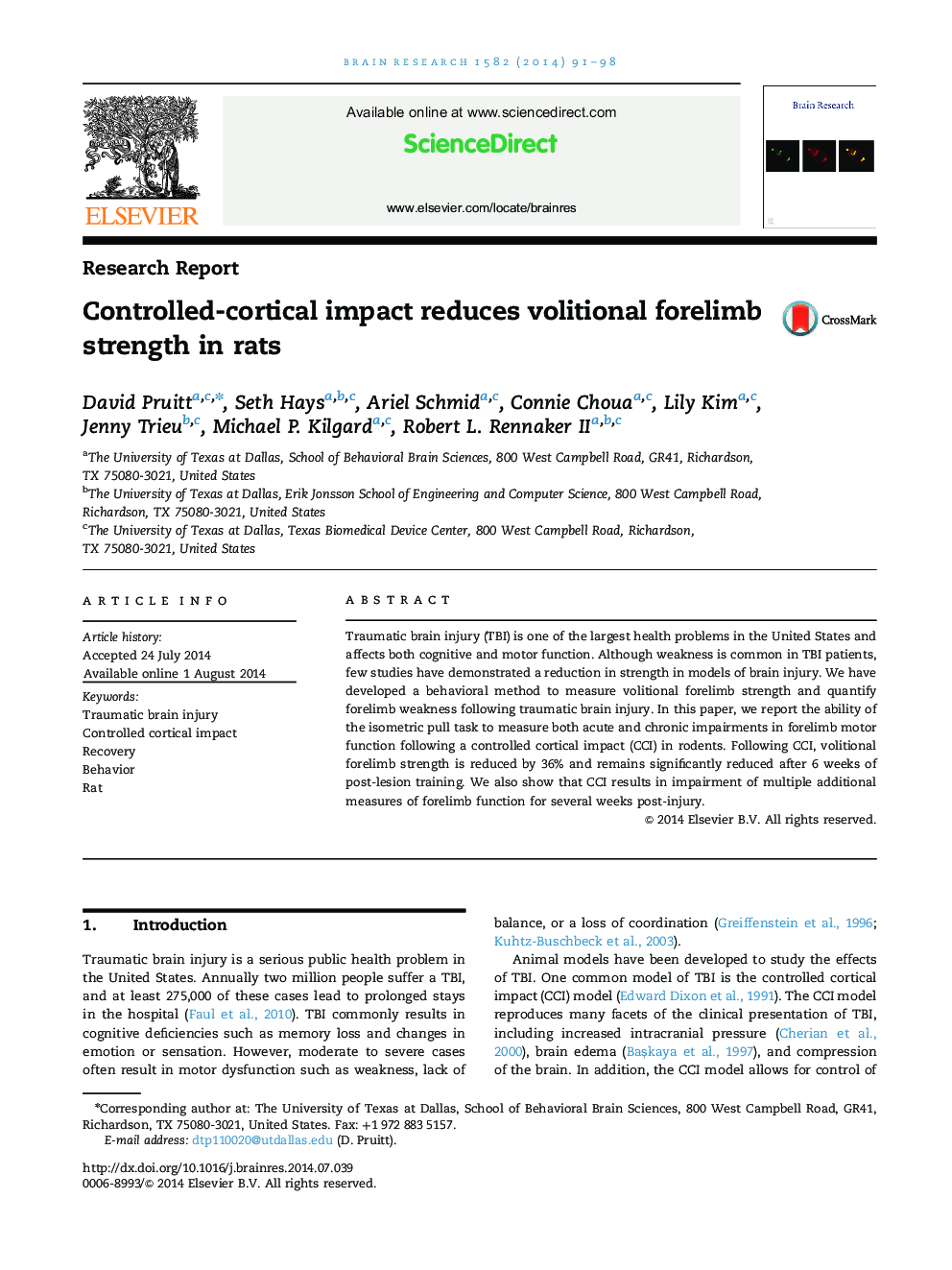| Article ID | Journal | Published Year | Pages | File Type |
|---|---|---|---|---|
| 4324098 | Brain Research | 2014 | 8 Pages |
•The isometric pull task is used to assess forelimb impairment after lesion.•We show that controlled cortical impact (CCI) results in chronic motor deficits.•Volitional forelimb strength is reduced by 36% after CCI.•A correlation was found between forelimb strength and white matter reduction.•The isometric pull task provides a framework for testing potential therapies.
Traumatic brain injury (TBI) is one of the largest health problems in the United States and affects both cognitive and motor function. Although weakness is common in TBI patients, few studies have demonstrated a reduction in strength in models of brain injury. We have developed a behavioral method to measure volitional forelimb strength and quantify forelimb weakness following traumatic brain injury. In this paper, we report the ability of the isometric pull task to measure both acute and chronic impairments in forelimb motor function following a controlled cortical impact (CCI) in rodents. Following CCI, volitional forelimb strength is reduced by 36% and remains significantly reduced after 6 weeks of post-lesion training. We also show that CCI results in impairment of multiple additional measures of forelimb function for several weeks post-injury.
